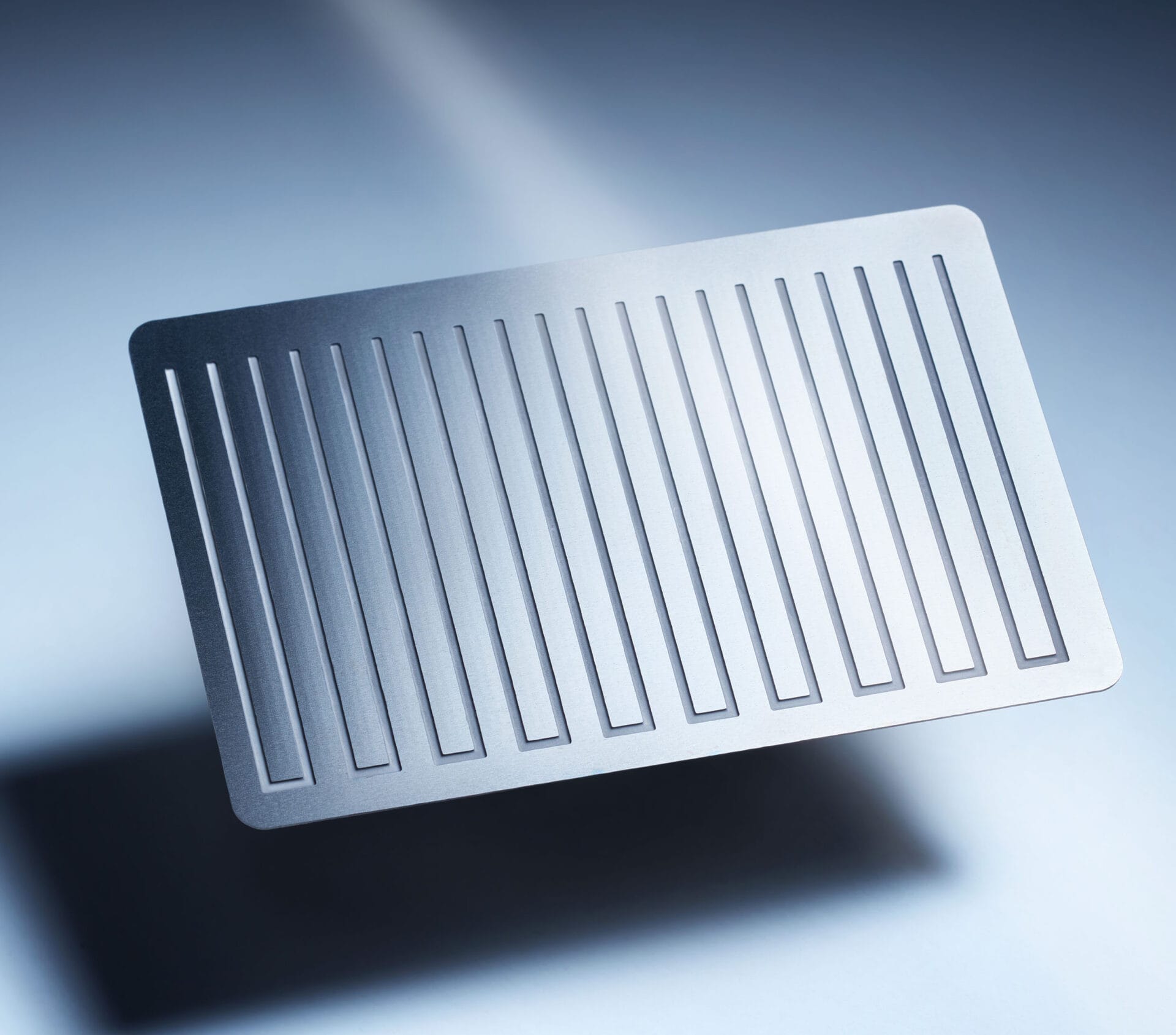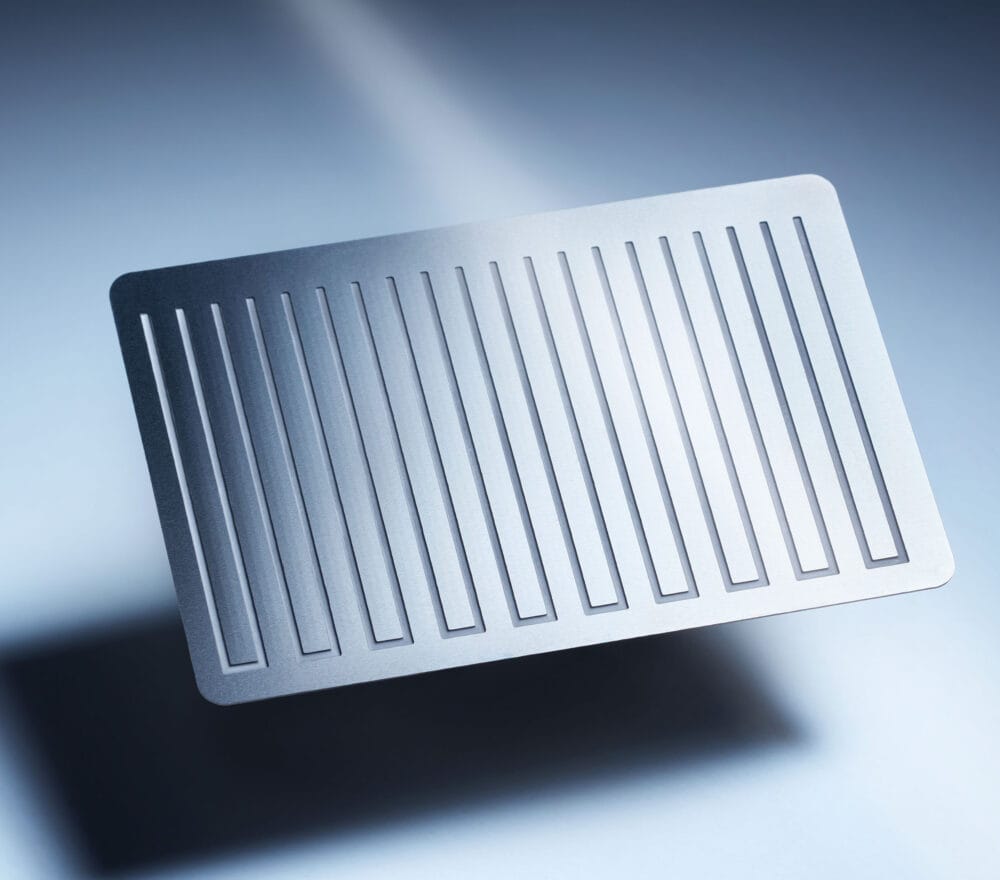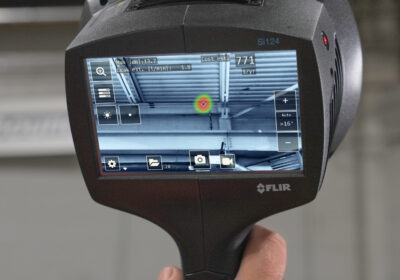micrometal Group’s photo-chemical etching (PCE) processes (including sheet PCE and reel-to-reel PCE) significantly contributes to sustainability by promoting the efficiency and lightweighting of electric vehicle (EV) technologies. One of the key advantages of PCE is its ability to create precise and intricate designs with minimal material waste. The process reduces the overall weight of components, leading to lighter EVs that require less energy to operate. By optimising the energy efficiency of EVs, PCE directly supports the reduction of carbon emissions and contributes to a more sustainable transportation sector.
Jochen Kern, ???? at micrometal Group says, “In the context of EVs, PCE is particularly advantageous for the production of battery components such as current collectors and cooling plates. These components require high precision to ensure optimal performance and longevity. PCE allows for the creation of complex patterns and fine features that are essential for maximising the surface area and efficiency of current collectors. Compared to traditional manufacturing methods like stamping or laser cutting, PCE offers superior precision and uniformity, which are critical for maintaining the performance and reliability of EV batteries.”
PCE is also ideal for producing lightweight and efficient heat exchangers and cooling systems used in EVs. The intricate and precise geometries achievable through PCE improve the thermal management of EVs, ensuring that batteries and electronic components operate within safe temperature ranges. Effective thermal management is crucial for the longevity and performance of EVs, and PCE’s ability to produce highly efficient cooling systems plays a vital role in this aspect. The reduced material usage and enhanced efficiency of PCE-manufactured components also contribute to the overall sustainability of the production process.
Kern continues, “Another area where PCE drives innovation in EV technologies is in the fabrication of electrical connectors and busbars. These components require high conductivity and precise dimensions to ensure efficient power distribution within the vehicle. PCE enables the production of connectors with complex shapes and fine details that are difficult to achieve with other manufacturing methods. This results in more reliable electrical connections, reduced energy losses, and improved overall efficiency of the EV’s electrical system. The precision of PCE also allows for the integration of novel materials and designs that further enhance the performance of these components.”

The use of PCE in manufacturing EV components also opens up new possibilities for design and innovation. Engineers can experiment with more complex and optimised geometries that were previously unattainable with conventional manufacturing techniques. This freedom in design leads to the development of more efficient and compact components, contributing to the overall advancement of EV technology. Additionally, the scalability and repeatability of PCE make it suitable for mass production, ensuring that innovative designs can be consistently manufactured at high volumes without compromising quality.
Kern concludes, “ PCE’s environmentally friendly nature further aligns with the sustainability goals of the EV industry. The process uses often recyclable chemicals and generates less waste compared to traditional machining and manufacturing methods. This reduces the environmental impact of component production and supports the broader goal of creating a more sustainable manufacturing ecosystem. By combining precision, efficiency, and environmental benefits, PCE stands out as a superior manufacturing process that drives innovation and sustainability in the rapidly evolving field of EV technologies.”
Working with the micrometal Group, customers can access high volume ultra-precise reel-to-reel stainless steel PCE, enhanced traditional sheet based PCE for a wide variety of sheet thicknesses in a broad range of metals, and a number of allied and complementary technologies. This means the micrometal Group offers a globally unique range of PCE services for its customers, and is able to provide a truly scalable service with a focus on quality, process efficiency, automation, and sustainability.








